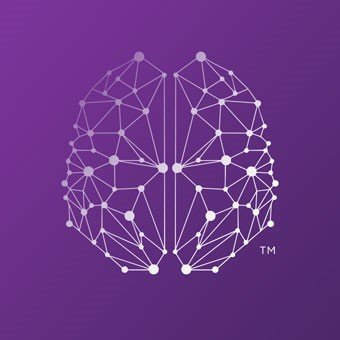
Envisioning the world of workplace training in 2040
Picture this: an employee sits down at their desk at 10am from their home office setup. They are welcomed by their personal digital assistant, which provides a quick brief about the day ahead. Upcoming meetings and projects are flagged, reminding them to make the necessary preparations, and seek out the information needed to ensure they can confidently put their questions, ideas and suggestions forward.
The employee puts on a pair of VR glasses, loads up the company meeting room, and waits for her colleagues to join the morning catch-up session. One by one, they begin to populate the virtual office to discuss a new feature that the company’s HR department is about to roll out. This new feature, embedded within their digital assistant (known by the team as the corporate KnowledgeBot) will allow employees to access their compliance training outside of company hours, and undergo personalised professional development whenever and wherever they please.
These technologies may seem like a far cry from the e-learning modules and en-masse in-person training sessions that we mostly see today. However, the reality is that the availability of next-gen learning solutions like these will be on the horizon much sooner than expected.
Over the past 15 months or so, we have seen conventional methods of corporate training unravelled in favour of new and emerging solutions, and ultimately, this has paved the way for a whole host of more innovative and futuristic technologies to aid the corporate learning process. From platforms with the ability to learn themselves and verify the integrity of their own knowledge, to solutions that take gamification to the next level, the possibilities are endless.
Collaboration is key
For those who are longing for the days of in-office collaboration and chance meetings with colleagues, there is no reason to fear the dawn of the digital. Quite the contrary, the onslaught of new technologies that will be available in the coming years will actually boost opportunities for connection.
Particularly within large organisations, where departments can be divided, and the occasion to converse with members of other teams are often numbered, strong digital infrastructures will serve to increase the number of opportunities for co-workers to collaborate.
While this tech is still in the nascent stages, in the years to come, augmented and virtual (AR and VR) technologies will be the driving force behind a more interconnected workforce. Employees will need only to put on their headset to enter the same cyber space, whether they are working from the company headquarters or their kitchen tables.
Without needing to inhabit the same physical location, the VR headset will replicate the office setting to ensure maximum productivity, allowing individuals from across the organisation to connect and interact as they would in person. Like the videoconferencing software of today, many of which allow individuals to virtually ‘raise their hand’ to speak, platforms utilising VR will come with the same capabilities inbuilt and amplified, to ensure that all workers have their say. Rather than limiting creativity and collective problem-solving, the future of work will create scenarios whereby individuals can put their heads together without being constrained by organisational silos or geographical restrictions.
Harnessing the power of artificial intelligence
Most will be familiar with Neuralink’s plans to implant microchips into the human brain to equip individuals quite literally with the inbuilt capacity to perform a whole host of tasks, from playing video games and controlling electronic devices, to recalling information from the internet at will. While these technologies might seem a million light-years away, it is entirely reasonable to expect that by the time 2040 rolls around, workers will be able to look to Artificial Intelligence (AI) bolstered tech for tailored support in their roles.
Learning and development initiatives can only ever be truly effective if employees are given information that is entirely accurate and up to date. Given that policies and regulations are ever-changing, this is no simple task for those in charge of keeping company documents in order. Fortunately, the emergence of sophisticated AI-powered toolsets will give employees the ability to access the latest specifications and documentation at the touch of a button, without having to rely on people manually updating critical business information.
Equipped with the ability to continuously learn and improve thanks to the power of AI, such technologies will have the power to ensure the integrity of information stored in the network: instead of having employees regularly fact-check company documents and ensure learning materials are correct, these machines will automatically prevent errors, duplications, and expired time-sensitive content from being uploaded to a company’s training database.
Further to this, gone will be the days of simply ‘forgetting’ any vital knowledge before an important meeting or sales pitch. In the future, expect up-and-coming technologies to appreciate the fact that while we try our hardest, human beings will always be at the mercy of mental blocks and in need of regular refreshers on our existing knowledge. Should this happen on the job, all an employee will need to do is pick up their phone, or ask their virtual assistant a question to receive the answers they require. Their device will be able to deliver the information in written form, or else through spoken conversation if the employee would prefer to conduct a verbal Q&A with their all-knowing corporate KnowledgeBot.
Ultimately, the sky is the limit when it comes to what emerging technologies can do to bolster workplace learning initiatives and productivity in the years to come - and already this is becoming a reality.


